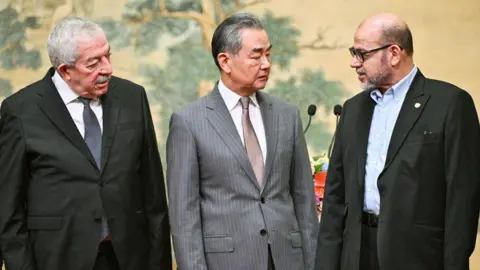 Getty Images
Getty ImagesRival Palestinian factions Hamas and Fatah have signed a declaration agreeing to form an interim “national reconciliation government” for the occupied West Bank and Gaza after the war with Israel, in a meeting brokered by China, China’s foreign minister and Hamas officials have said.
Representatives from the groups, along with 12 other Palestinian factions, pledged to work for unity following three days of talks in Beijing.
It is the latest of several reconciliation deals Hamas and Fatah have agreed on in their long fractured relationship, none of which have yet led to the end of the schism.
Israel has also ruled out a role for Hamas or Fatah in governing Gaza after the end of hostilities.
The deep split began in 2007 when Hamas became the sole ruler in Gaza after violently ejecting Fatah from the territory. This came after Palestinian President and Fatah leader Mahmoud Abbas dissolved the Hamas-led unity government formed when Hamas won national elections the year before.
Since then, the Fatah-dominated Palestinian Authority has been left in charge of only parts of the West Bank.
Hamas has lost control in Gaza since the war with Israel began on 7 October with Hamas’s unprecedented attack on Israel, in which it killed about 1,200 people and took 251 others back to Gaza as hostages. More than 39,000 Palestinians have been killed in Gaza as a result of the Israeli offensive, according to the territory’s Hamas-run health ministry.
In a statement posted on Telegram, Hamas spokesman Hossam Badran said the declaration was an “additional positive step on the path to achieving Palestinian national unity”.
He said the groups were in agreement on “Palestinian demands relating to ending the war… which are: a ceasefire, complete withdrawal from the Gaza Strip, relief and reconstruction.”
He said “the most important” part of what was agreed was to form a Palestinian national consensus government “that would manage the affairs of our people in Gaza and the West Bank, supervise reconstruction, and prepare the conditions for elections”.
The declaration is in effect an expression of intent as there are major obstacles to making such an agreement work. Fatah has yet to comment on it, though its representative Mahmoud al-Aloul thanked China for its support of the Palestinian cause following the announcement.
Israel, which has vowed to destroy Hamas before it will end the war, swiftly dismissed the Beijing declaration.
“Instead of rejecting terrorism, Mahmoud Abbas embraces the murderers and rapists of Hamas, revealing his true face,” Israel’s Foreign Minister Israel Katz said on X.
“In reality, this won’t happen because Hamas’s rule will be crushed, and Abbas will be watching Gaza from afar. Israel’s security will remain solely in Israel’s hands.”
But the lack of success of past deals has not deterred China, which wants to broker peace in the ongoing Israel-Hamas conflict and sees Palestinian unity as key to that outcome. Beijing previously hosted talks between Hamas and Fatah in April.
“China and Palestine are trustworthy brothers and good partners,” said foreign ministry spokesperson Mao Ning said on Tuesday, adding that China would “work tirelessly with all relevant parties” towards unity and reconciliation.
“Reconciliation is an internal matter for the Palestinian factions, but at the same time, it cannot be achieved without the support of the international community,” said foreign minister Wang Yi after the declaration was signed, in remarks reported by Reuters news agency.
He also outlined a three-step plan to address the Gaza war: promoting a lasting ceasefire; upholding the “principle of Palestinians governing Palestine”; and recognising the state of Palestine as part of a two-state solution and giving them full UN membership.
China’s support of Palestinian causes stretches back to the era of Chinese Communist Party leader Mao Zedong, who sent weapons to Palestinians in support for so-called “national liberation” movements around the world. Mao even compared Israel to Taiwan – both backed by the US – as bases of Western imperialism.
In their remarks on the latest conflict, Chinese officials and even President Xi Jinping have stressed the need for an independent Palestinian state. Mr Xi has also sent his top diplomats to the Middle East for talks and recently hosted Arab leaders for a conference in Beijing.
The conflict has also erupted at a time when China has ambitions to play a more direct role in international politics and has presented itself as a better suitor for the world than the US. Last year it brokered a deal between Middle East rivals Iran and Saudi Arabia to restore ties for the first time since 2016.
Since then, it has promoted a vision of a Chinese-led world order while criticising what it sees as the failures of US “hegemonic” leadership.










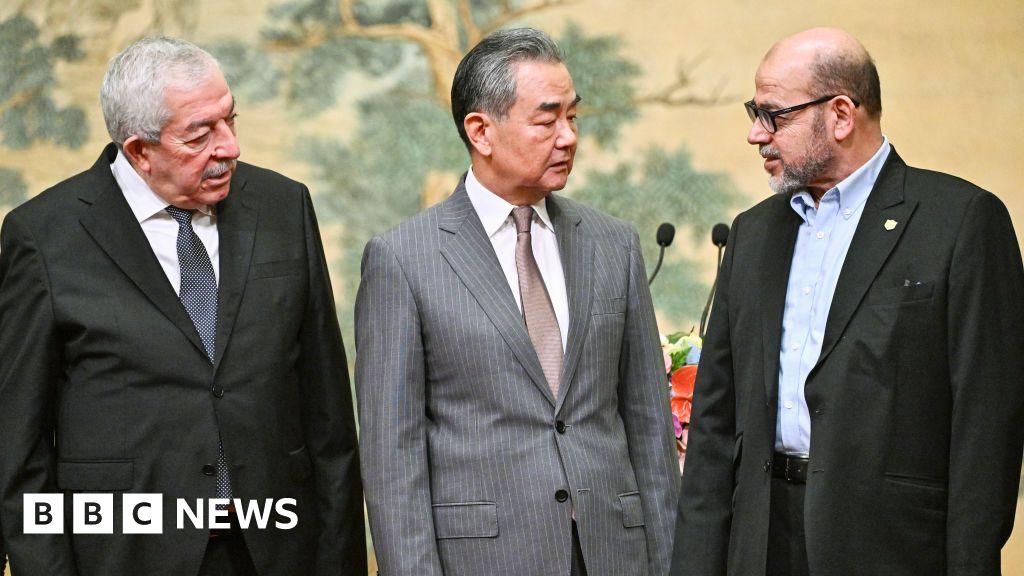




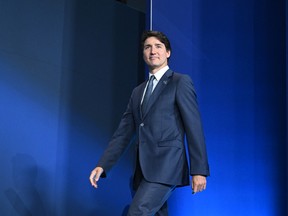


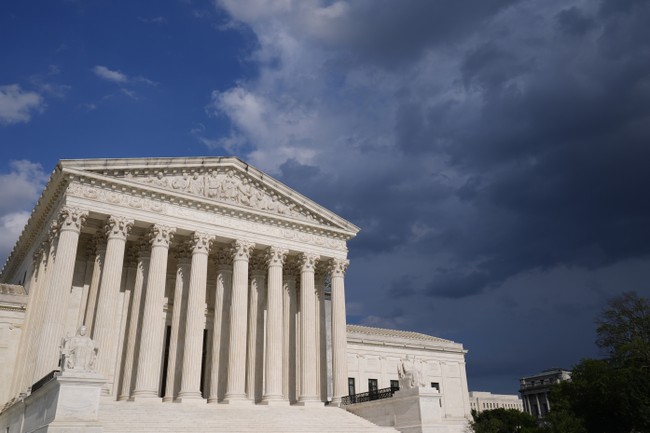
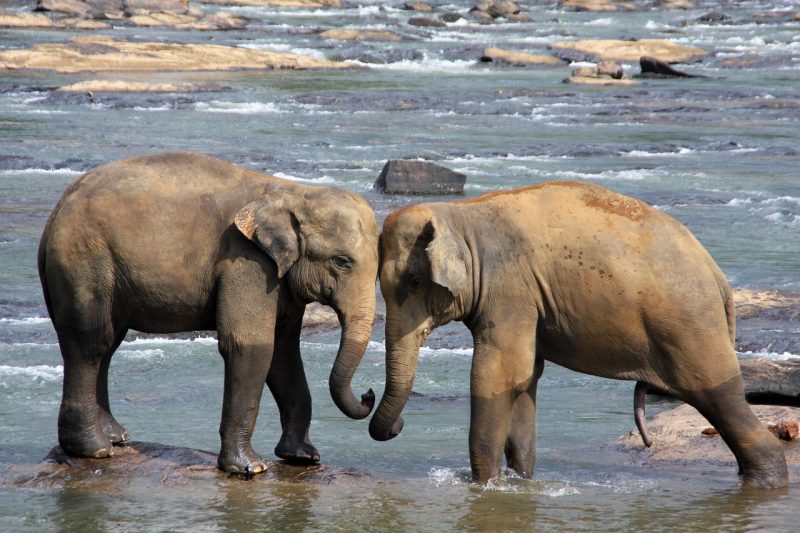
Discussion about this post